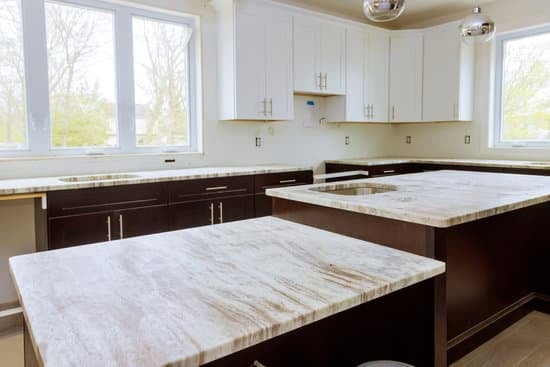Are you wondering, “Can I write off home improvement loan?” Home improvement loans can provide a valuable source of funding for renovation projects, but they can also offer potential tax benefits.
In this article, we will explore the different types of home improvement loans available and discuss the potential tax deductions associated with using these loans. We will also delve into the eligibility requirements for claiming tax deductions on home improvement loans, as well as the necessary documentation needed for this purpose.
When it comes to understanding home improvement loans, it’s important to familiarize yourself with the various options available. From personal loans to home equity lines of credit (HELOC) and cash-out refinancing, each type of loan has its own set of advantages and considerations. Understanding the differences between these options can help you make an informed decision about which one may be best suited for your specific financial situation and renovation needs.
In addition to exploring the types of home improvement loans available, we will also delve into the potential tax benefits associated with using these loans. This includes discussing any tax deductions that may be available for interest paid on a home improvement loan, as well as any limitations or restrictions that may apply. By understanding these potential tax benefits, you can better assess the financial implications of using a home improvement loan for your renovation project.
Tax Deductions for Home Improvement Loans
Under the Internal Revenue Code, homeowners can potentially benefit from tax deductions when using a home improvement loan for certain purposes. This section will explore the potential tax benefits of utilizing a home improvement loan and how it can be written off.
Qualified Expenses
It’s important to understand that not all home improvement expenses are eligible for tax deductions. In general, the IRS allows deductions for expenses that add value to the home, prolong its useful life, or adapt it for new uses. This may include renovations such as adding a new room, upgrading the kitchen or bathroom, replacing the roof or windows, or making accessibility enhancements for individuals with disabilities.
Interest Deductions
One of the primary tax benefits of using a home improvement loan is the ability to deduct the interest paid on the loan. Similar to mortgage interest deductions, homeowners can typically write off the interest on loans used for qualified home improvements. However, there may be restrictions and limitations on how much interest can be deducted based on factors such as loan amount and type of improvements made.
Capital Gains Considerations
Another potential tax benefit of using a home improvement loan is reducing potential capital gains taxes when selling the property. By increasing the basis in their home through qualifying improvements, homeowners may be able to reduce their taxable gain when selling their property in the future. It’s important to keep detailed records of all home improvement expenses and consult with a tax professional to ensure compliance with IRS regulations.
Understanding these potential tax benefits
Eligibility Requirements
Homeowners who are considering taking out a home improvement loan and are interested in potentially writing off the loan for tax purposes may wonder about their eligibility. Understanding the qualifications for tax deductions on home improvement loans can help individuals determine if they can benefit from such write-offs. Here are some key eligibility requirements to consider:
– Homeownership: In order to qualify for tax deductions on a home improvement loan, individuals must be homeowners. Renters or those who do not own property will typically not be eligible for these tax benefits.
– Loan Purpose: The IRS allows tax deductions for home improvement loans used to make “capital improvements” to a primary residence, such as adding a new room, remodeling the kitchen, or installing a swimming pool. However, general repairs and maintenance typically do not qualify for tax deductions.
– Primary Residence: The property being improved with the loan funds must be the taxpayer’s primary residence. Second homes or investment properties often do not qualify for the same tax benefits.
– Meeting IRS Criteria: Taxpayers must ensure that their home improvement project meets the IRS criteria for deductible expenses. It is important to consult with a tax professional or review IRS guidelines to confirm eligibility before claiming any deductions.
By understanding these eligibility requirements, homeowners can determine if they qualify for tax deductions on their home improvement loans and take full advantage of potential write-offs.
Documentation Needed:
Once it has been confirmed that an individual meets the eligibility requirements and intends to claim write-offs on a home improvement loan, specific documentation will be necessary when filing taxes. The following documents may be required:
1. Loan Documents: Documentation relating to the home improvement loan, including the loan agreement and any associated paperwork.
2. Receipts and Invoices: Proof of expenses related to the capital improvements made with the loan funds.
3. Proof of Ownership: Documentation demonstrating ownership of the property being improved.
4. Other Relevant Records: Any additional paperwork or records that support the claim for tax deductions on the home improvement loan.
It is imperative for homeowners to keep thorough and organized records of all relevant documentation in order to substantiate their claims for write-offs on their home improvement loans come tax time. Failure to provide adequate documentation could result in disqualification from receiving these tax benefits.
Limits and Restrictions:
While homeowners may meet the eligibility requirements and have proper documentation in place, it is important to note that there are limits and restrictions when it comes to writing off home improvement loans for tax purposes. The IRS sets specific rules regarding deductible expenses related to home improvements, including limitations on the amount that can be claimed as a deduction.
For example:
– There may be a cap on how much of the interest paid on a home Improvement Loan can be deducted.
– Certain types of renovations or upgrades may not qualify as capital improvements according to IRS guidelines.
– Deductions may only apply if itemizing deductions rather than taking standard deductions.
Understanding these limits and restrictions can help individuals manage their expectations and plan accordingly when seeking tax deductions related to home improvement loans.
Additionally, getting advice from qualified professionals like accountants or financial consultants will also help property owners understand how best they can navigate through similar projects so they achieve optimal results without breaching regulations.
Documentation Needed
When it comes to claiming tax write-offs on home improvement loans, proper documentation is essential to ensure that you can take advantage of any potential tax benefits. The first step in this process is to gather all the necessary paperwork related to your home improvement project and loan. This includes invoices, receipts, and any other proof of expenses incurred during the renovation or improvement.
In addition to documenting the costs of the actual home improvement project, it is important to keep detailed records of the loan itself. This may include the original loan agreement, statements showing interest payments made, and any other relevant documents provided by the lending institution. Keeping thorough and organized records will make it easier to substantiate your claims for tax deductions should you be audited by the IRS.
Another crucial piece of documentation needed for claiming tax write-offs on home improvement loans is evidence that the funds were used specifically for eligible expenses. This can be demonstrated through contracts with contractors or suppliers, as well as any permits or approvals obtained for the work being done. Being able to clearly show how the loan proceeds were allocated towards qualified home improvements will strengthen your case for claiming tax benefits.
It’s important to note that there may be additional requirements depending on the specific tax laws and regulations in your area, so it is advisable to consult with a tax professional who can provide guidance tailored to your individual circumstances.
| Documentation Needed | Details |
|---|---|
| Invoices and Receipts | Evidence of expenses incurred during the renovation or improvement |
| Loan Documentation | Original loan agreement, statements showing interest payments made |
| Evidence of Fund Allocation | Contracts with contractors or suppliers, permits or approvals obtained for the work |
Limits and Restrictions
When considering the tax benefits of writing off a home improvement loan, it is important to understand that there are limitations and restrictions that may apply. These limitations may affect the amount of tax deduction you can claim and the types of home improvements that qualify for write-offs.
Types of Qualifying Home Improvements
Not all home improvements may be eligible for tax deductions. The Internal Revenue Service (IRS) has specific guidelines on what constitutes a qualifying home improvement for tax purposes. Generally, improvements that add value to your home or prolong its useful life may be eligible for tax deductions. Examples include adding a new room, remodeling the kitchen, replacing the roof, or installing a security system.
Maximum Allowable Deductions
There are also limits on the amount of tax deduction you can claim for home improvement loans. The IRS sets a maximum limit on the total amount of mortgage debt you can deduct interest on, which includes any home improvement loans. It is important to consult with a tax professional to understand these limits and how they apply to your specific financial situation.
Restrictions on Eligibility
In some cases, certain taxpayers may not be eligible for writing off their home improvement loans. For example, if your home improvement loan exceeds the fair market value of your home or if it is used for purposes other than improving your primary residence, you may not be able to claim a tax deduction. Additionally, there are income limitations and other restrictions that could affect your eligibility.
Understanding these limits and restrictions can help homeowners make informed decisions about using a home improvement loan for tax benefits. Consulting with a tax professional is crucial in navigating these complexities and ensuring compliance with IRS regulations.
Tips for Maximizing Deductions
When it comes to maximizing deductions for home improvement loans, there are several practical tips and strategies that can help homeowners make the most of the potential tax benefits. By taking advantage of these tips, individuals can potentially reduce their tax burden and save money on their home improvement projects.
Here are some practical tips for maximizing deductions on home improvement loans:
- Keep detailed records: It is important to keep detailed records of all expenses related to the home improvement project. This includes receipts for materials, labor costs, and any other expenses incurred during the renovation process.
- Understand eligible expenses: Not all expenses related to a home improvement project may be eligible for tax deductions. Understanding which expenses qualify for deductions can help homeowners maximize their tax benefits.
- Consider energy-efficient upgrades: Making energy-efficient upgrades to a home, such as installing solar panels or upgrading insulation, can often result in additional tax incentives and deductions.
- Seek professional advice: Consulting with a tax professional can provide valuable insights into how to maximize deductions for home improvement loans. They can offer personalized advice based on individual financial situations and goals.
By following these practical tips and strategies, homeowners can potentially increase their tax benefits when using a home improvement loan for renovation projects.
Remember that each homeowner’s financial situation is unique. Therefore, consulting with a tax professional is essential to ensure that all available deductions are being maximized. With the guidance of a knowledgeable expert, homeowners can i write off home improvement loan effectively and in compliance with applicable tax laws.
Other Financial Considerations
When it comes to deciding whether to write off a home improvement loan, there are several financial considerations to keep in mind. One important factor to consider is the interest rate on the loan.
Home improvement loans can have varying interest rates, and it’s crucial to assess whether the potential tax deduction justifies the cost of the loan in the long run. Additionally, borrowers should evaluate the overall financial impact of taking on debt for home renovations and weigh it against the potential tax benefits.
Another financial consideration when deciding whether to write off a home improvement loan is the impact on credit scores and overall financial stability. Taking on additional debt through a home improvement loan can affect credit scores and debt-to-income ratios, which are important factors for future borrowing and financial health. Borrowers should carefully consider how a home improvement loan may influence their overall financial situation before deciding whether to pursue a tax deduction for it.
Furthermore, homeowners should also evaluate alternative funding options for their home improvement projects. In some cases, using savings or other sources of funds may be more financially advantageous than taking out a home improvement loan, especially if the potential tax deduction is minimal compared to other financing options. It’s essential to weigh all available financial resources and consider the long-term implications of each option before making a decision.
| Financial Consideration | Importance |
|---|---|
| Interest Rate on Loan | Assess potential tax deduction against cost of loan |
| Credit Scores and Financial Stability | Evaluate impact on credit scores and overall financial health |
| Alternative Funding Options | Weigh other financing possibilities against potential tax benefits |
Consultation With a Tax Professional
In conclusion, while there are potential tax benefits to using a home improvement loan, it is important to approach the process with caution and seek guidance from a tax professional. Understanding the different types of home improvement loans and the eligibility requirements for tax deductions can be complex, and navigating the necessary documentation and limitations can be overwhelming.
However, with the expertise of a knowledgeable tax professional, homeowners can ensure they are maximizing their deductions while staying within the legal parameters.
Moreover, seeking consultation from a tax professional can provide valuable insight into other financial considerations related to home improvement loans. This includes understanding how the loan may impact other aspects of your finances such as mortgage interest deductions or property taxes. With their expertise, tax professionals can help homeowners develop effective strategies for maximizing the financial benefits of a home improvement loan without running into any unforeseen issues come tax time.
In summary, consulting with a tax professional when considering tax deductions for home improvement loans is crucial in ensuring both compliance with tax laws and maximum benefit for homeowners. Their guidance can help navigate through the complexities of eligibility requirements, documentation needed, limitations and restrictions, and overall financial considerations. By taking advantage of their knowledge and expertise, homeowners can make informed decisions about whether they qualify for writing off home improvement loans and how to effectively do so.
Frequently Asked Questions
What Type of Loans Are Tax Deductible?
Certain types of loans, such as mortgage loans or home equity loans, may be tax deductible if they are used for home improvements. However, it’s important to consult with a tax professional to understand the specific rules and regulations.
Can You Use a Home Improvement Loan for Something Else?
While it is not advisable to use a home improvement loan for something else, there may not be strict restrictions on how the funds are used. However, it’s important to consider that using the loan for a different purpose could lead to financial strain and difficulties in repaying the debt.
Is a Renovation Loan a Good Idea?
A renovation loan can be a good idea if you have a well-planned and budgeted renovation project that will add value to your property. It can provide the funds needed to make significant improvements without having to deplete savings or use high-interest credit cards.
However, careful consideration of repayment terms and interest rates is crucial before pursuing this option.

I’m thrilled to have you here as a part of the Remodeling Top community. This is where my journey as an architect and remodeling enthusiast intersects with your passion for transforming houses into dream homes.





